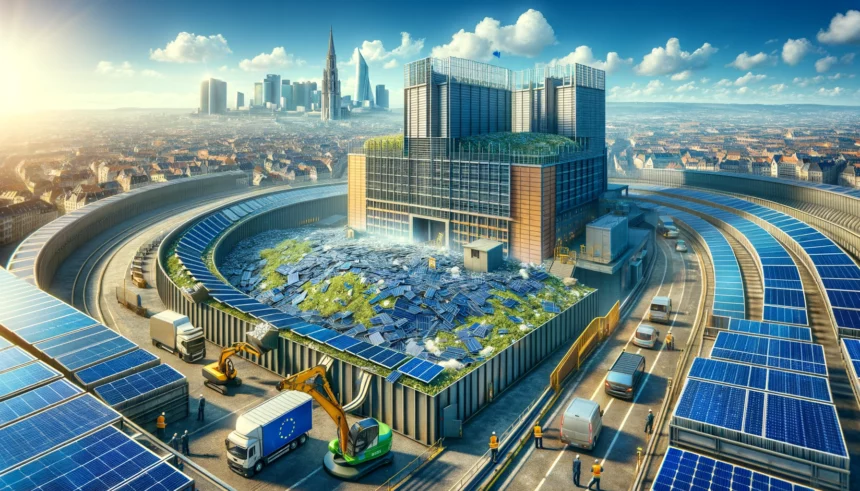In a landmark decision that promises to reshape the landscape of the solar energy sector, the European Union has announced an update to its waste management policies that places a greater responsibility on solar panel manufacturers. During a pivotal meeting in Brussels on March 4, energy ministers unanimously agreed to revise the Waste Electrical and Electronic Equipment (WEEE) directive. This revision comes in the wake of a 2022 EU Court of Justice verdict, which criticized the EU’s previous legislation for its retroactive application on solar photovoltaic (PV) panels sold before 2012.
The crux of the updated directive mandates that the producers of solar panels, which were introduced to the market after August 13, 2012, will now bear the costs related to the collection, treatment, and recycling of their products’ waste. This significant policy shift transfers the onus of waste management from consumers and municipal bodies directly onto the manufacturers, encouraging a more accountable and environmentally friendly approach to solar panel production and disposal.
Moreover, the scope of the legislation has been broadened to include manufacturers of electrical and electronic equipment introduced to the EU market after 2018. This expansion is in line with guidelines issued by the European Commission to streamline national efforts in handling waste in a manner that is both effective and environmentally responsible.
Statistics from the EU highlight a dramatic rise in the volume of electrical and electronic goods marketed within the union, from 7.6 million tonnes in 2012 to an astounding 13.5 million tonnes in 2021. However, the increase in the volume of goods has not been matched by improvements in waste collection and recycling, with the total collection growing from three million tonnes to only 4.9 million tonnes over the same period. This disparity underscores the urgent need for more robust waste management strategies.
Korrina Hegarty, representing APPLiA, the home appliance trade association, has voiced support for the European Commission’s decision to review these policies in 2026. She expressed the industry’s readiness to collaborate with the EU in identifying and overcoming the hurdles to enhancing e-waste collection and recycling throughout the continent.
Echoing the call for immediate action, Stéphane Arditi of the European Environment Bureau stressed the importance of not waiting until 2026 to begin addressing these issues. Delaying action, Arditi argues, would mean missing out on critical years in the battle against electronic waste pollution, emphasizing the need for swift and decisive action.
This revised WEEE directive is a testament to the EU’s dedication to the principles of the circular economy and reducing the environmental impact of electronic waste. By holding manufacturers accountable for the waste generated by their products, the EU is not only aiming to reduce environmental damage but also to spur innovation in product design and waste management technologies.
As the solar panel industry and other electronic equipment manufacturers adjust to these new regulations, their response, and the effectiveness of the EU’s strategies in enhancing waste collection and recycling will be closely monitored. The successful implementation of this policy could serve as a model for similar initiatives worldwide, marking a significant stride towards a more sustainable and responsible electronic industry.
The path to a more sustainable electronic industry is challenging, filled with complexities and hurdles. Yet, the EU’s recent legislative update on solar panel and electronic waste management signals a crucial step forward in confronting one of the most pressing environmental challenges of our time. Stakeholders from all sectors are now poised to adapt to these changes, with a collective focus on innovation, sustainability, and promoting a circular economy for a brighter, greener future.















